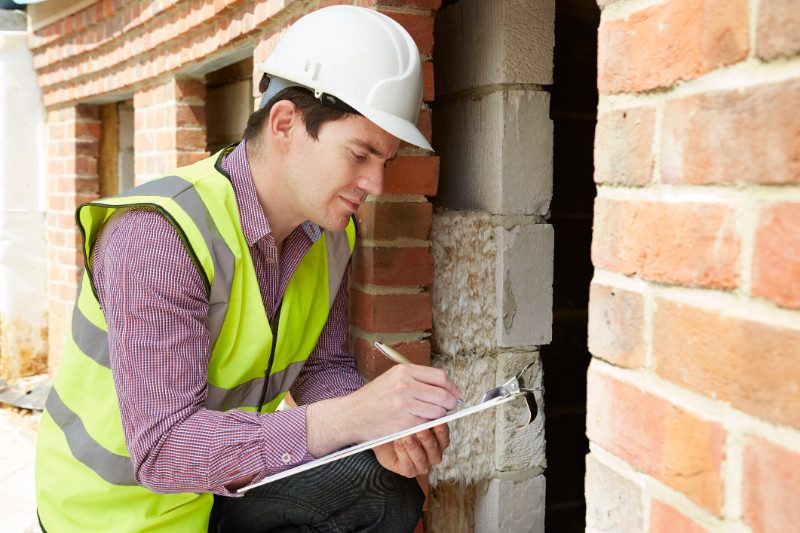Southern California has one of the hottest housing markets in the country, and the beautiful coastal communities of San Diego are no exception. In this competitive market, listing your home without the guidance, experience, or resources of a real estate professional can expose you to many risks. These include under- or overvaluing your home, accepting bad offers, or spending too much on costly home repairs and improvements.
Before you start your home selling journey, read this comprehensive guide on how to sell your house fast in San Diego.
What’s Inside:
- Work with an expert San Diego Realtor
- Market your home to the right buyers
- Pass escrow inspections and appraisals
- Review the settlement statement at closing
- Sell your house fast with a top San Diego REALTOR®
Work with an expert San Diego Realtor

There are many reasons why working with a San Diego Realtor is the first – and most important – advice you should follow when you want to sell your house fast in San Diego. From localized expertise to cutting edge marketing strategies, having a San Diego Realtor by your side gives you the best chance of getting great offers for your home.
Each home seller has different needs and priorities. For that reason, it’s important to choose a San Diego Realtor that fits yours, particularly in terms of area of expertise and communication style. Here are some tips to keep in mind while interviewing potential realtors:
Look at their track record and credentials
In real estate, the numbers speak for themselves. Look at the Realtor’s stats and ask questions like:
- How long have they been working in San Diego real estate?
- How many sales have they done?
- When did they last sell a home? How much was the asking and final sales price?
- What type of residential real estate do they specialize in?
- How long do their listings stay on the market?
You can easily find the answers to these questions on their website if they have one or you can ask them during an interview.
It’s also important to ensure that your Realtor is licensed in California, which you can confirm through the California Association of Realtors’® (CAR) Find a REALTOR tool. You can also double-check their credentials through the California Department of Real Estate’s (CRE) online Public License Information.
Ask about their listing and marketing strategy for your home
After providing a comprehensive description of your home, you can ask potential Realtors for a home estimate and if they have a comprehensive marketing strategy in mind. This can help you gauge not only your Realtor’s knowledge and resources on the area, but also their work ethic, preferred methods of communication, and commitment to helping you find the best deal for your home.
Read the fine print on their listing agreement
Once you find a Realtor you want to work with, you’ll have to sign a listing agreement with them. This gives your Realtor exclusive rights to list, advertise, and handle the sale of your house for a certain period. As much as it serves to protect your Realtor, it should also contain provisions that protect you and your interests as their client.
Before you sign that agreement, make sure to check the commission amount that you’ll have to pay. This is usually around 5% to 6% of the property sale. The duration of the contract should also be six months or less. Any longer than that can be a red flag, since the longer your home sits on the market, the less likely it will sell for its original list price.
Lastly, read through the Realtor’s duties carefully. It should be clear to you what kind of services you can expect from them, such as providing you with a comparable market analysis (CMA) or marketing your property on several platforms. If you have any specific duties to ask of your Realtor, like connecting you with general home inspectors and contractors, make sure that it is outlined clearly in your listing agreement.
List at the right price

Deciding your home’s list price is a critical point in your home selling journey, thus requiring a hefty amount of research and calculations. Your San Diego Realtor will help guide you through this process, which include:
Knowing how much your home is currently worth
Your home’s current market value is a great benchmark in setting the right list price. You can calculate it manually or use an online home value estimator tool.
You can also get an idea of your home value – and the state of the San Diego real estate market – by drawing information from various sources, such as:
- The Multiple Listing Service (MLS)
- News and local market updates from the San Diego Association of Realtors (SDAR) and the CAR
- Real estate news from local media outlets like The San Diego Union-Tribune and the San Diego Business Journal
Estimating your home equity
Home equity refers to the value of your home minus the amount you owe on your mortgage loan. It’s a simple math equation, too. If your home is currently valued at $900,000 and you still owe your lender $300,000, your equity is $600,000. This is how much you own of your property.
Knowing your home equity is important—it’s a good starting point in understanding how much money you might make in selling your home. That said, you don’t always get all your equity back. You must take into consideration selling costs, which include property taxes and your agent’s commission.
In California, surging home prices have pushed the average homeowner’s equity gains to $118,700 in Q3 2021, according to CoreLogic. But your home equity is not entirely contingent on market prices. If you want to build it, pay your monthly amortization on time to reduce your debt. Making an extra payment if you have enough funds won’t hurt either. Making valuable improvements to your property can also help you build your equity.
Having an overview of the San Diego real estate market
To help you get started on your market research, here’s a bird’s eye view of San Diego’s real estate market:
-
Price range. 1-to-3-bedroom single-family homes can be listed anywhere between $450,000 to $6,998,000. But luxury properties – which have larger acreage and are often located in waterfront areas or gated communities – range from $1,100,000 to $28,000,000. Condominiums and townhomes, on the other hand, can be priced anywhere between $229,900 to $11,950,000. Prices depend on factors including number of bedrooms, location, property size, available amenities, and other features.
-
Appreciation rates. The San Diego real estate market has earned its reputation for being one of the best long term real estate investments in the country. San Diego properties have appreciated by 107.57% in the last decade, resulting in an average annual home appreciation rate of 7.58%.
-
Best time to close on your home sale. In general, the real estate industry follows seasonal highs and lows throughout the year. Homes tend to sell higher and faster during spring and summer, but the activity ultimately slows down during the second half of the year. In San Diego, the first half of May until the first half of June tends to be the best time for home sellers to list and close on their home. Interest rates also play a major role in the market, with high buyer demand correlating with low interest rates.
-
Buyer demand is high year-round. Despite moving into the winter off-season, the CAR notes that California’s home prices remained stable, showing unseasonably resilient market trends despite the lack of inventory, interest rate increases, and housing affordability issues. This is further supplemented by SDAR’s housing market data for November 2021, which shows that San Diego’s real estate market remained strong as well.
-
Homes don’t stay long on the market. The market has slowed down considerably since the Spring market frenzy. Compared to the earlier part of the year when homes were sold after only one to two weeks of being listed, single-family residences and condominium properties now take an average of 22 days on the San Diego market (according to November 2021 data). Compared to other real estate markets – and considering that it’s the winter season – San Diego homes sell fast.
-
The pandemic continues to affect homebuyer preferences. In the recently released CAR 2021 Annual Housing Market Survey, the pandemic continues to control buyers’ preferences, especially with the advent of permanent remote work setups. This has spurred many homebuyers into finding bigger homes or moving to suburban and resort communities. In turn, these trends caused intense market competition, shorter listing periods, and larger home equity for sellers in San Diego and other coastal areas in California.
Understanding the comparative market analysis (CMA) for your home
To avoid overpricing or underpricing your home, your Realtor will help you accurately assess your home’s market value by providing you with a CMA.
The CMA should contain a detailed analysis of all raw data concerning your home, such as the selling prices of houses that are like yours in size, amenities, and location. A good CMA will also include information like the average length of time these homes stay on the market, their sale prices compared to their list prices, and notable neighborhood features such as proximity to schools and local attractions.
Getting a pre-listing home inspection
A home inspection is typically the buyer’s responsibility. However, there are many reasons why you should also order a pre-listing inspection. Aside from giving you a more accurate picture of your home’s condition and value, it will also help you avoid hidden structural problems, which can scare away potential buyers or be used to negotiate for a lower sale price.
Your San Diego Realtor will put you in contact with a local and licensed home inspector. They can provide a written report on the state of your home and give repair recommendations. With this information, you can immediately work on making improvements – especially if they are structural or mechanical in nature – and minimize any costly closing delays. You can even use the report as additional marketing collateral for prospective buyers to show your home’s structural integrity.
Moreover, in California, sellers are required to disclose to their buyer all material aspects of the home that can affect its value or desirability, especially damages or defects. Therefore, a pre-listing home inspection can also help you avoid legal complications with your disclosure document.
Market your home to the right buyers

Discuss your marketing strategy with your Realtor
By the time your home is listed, a great San Diego Realtor would already have a comprehensive and aggressive marketing strategy for your property in place. This is designed to sell your San Diego home fast by reaching all potential buyers through online and offline platforms. It should include:
-
Professional staging for your home, highlighting its selling points and architectural features, as well as providing an image of luxury and comfort
-
High-quality photos and a virtual 3D walkthrough of your home, which gives buyers a great first impression and convert leads to clients
-
A variety of print media advertising, such as yard signage, property flyers, and postcard mailings
-
An engaging online marketing plan that maximizes the Realtor’s wide-reaching social media platforms and professional network, SEO-optimized website exposure, and presence on popular real estate search websites
-
On-ground marketing events like open houses and exclusive showings
Choose the best offer
In a competitive real estate market like San Diego, it’s highly probable that you’ll receive multiple offers for your home. Getting top dollar for your home is the end goal. However, arriving there doesn’t always mean settling for the highest bidder.
Your San Diego Realtor will be indispensable when it comes to filtering your offers and avoiding any red flags or potential issues with buyers. The choice, however, is ultimately up to you. So, when reviewing your offers, here are three key things to look out for:
-
Financial strength. Other than the price point, it’s extremely important to check if your potential buyer has a letter of qualification from a reputable financial institution or mortgage lender. Investors who come with cash offers are another green flag, since it ensures that you can sell your house fast in San Diego without the risks or the stress of selling traditionally.
-
Less requests, contingencies, and concessions. An offer with less contingencies means less costs or work on your end. So, when you receive multiple offers with similar financial strengths, it’s best to go with the one asking for less requirements at closing.
-
Flexible closing date. This is crucial especially if you’re also in the process of buying a new home. There can be unforeseen issues or delays with closing on your new house; having a buyer who’s willing to give you the time you need can take a lot of weight off your shoulders. The same goes if you need to sell fast and move out immediately— you can negotiate with the buyer to waive certain appraisals or have a shorter due diligence period.
Pass escrow inspections and appraisals

Once you’ve settled on a great offer, you and your buyer will sign an initial agreement. This will be held in your closing agent’s escrow account along with the buyer’s deposit. Depending on the buyer’s contingencies or requests outlined that you agreed to, you may need to prepare for several inspections and appraisals before being able to push through with the closing.
Pass the buyer’s home inspection
To ensure that the home they’re buying is safe, buyers will order their own home inspection within 10 days of putting the agreement into escrow. Although this is one of the biggest hurdles to closing, you shouldn’t run into any major surprises or problems if you’ve accomplished a pre-listing home inspection and made the necessary repairs beforehand.
Prepare for the home appraisal
After the home inspection, the buyer’s mortgage lender will order an appraisal of the house to calculate your home’s market value and ensure that the buyer isn’t paying more than the house is worth.
Make sure that your Realtor is there during the onsite visit to answer any questions the appraiser might have. They will also provide the appraiser a CMA and a fact sheet detailing home improvements and other neighborhood features, which can give them a more holistic and objective insight into your home’s value.
File for a Preliminary Title Report (PTR)
Your buyer’s lender will require title insurance before funding the house purchase. In Southern California, the seller typically pays for the title insurance, but you can still negotiate this with your buyer.
The title insurance will be based on a Preliminary Title Report (PTR) from a title search. This will confirm your full ownership of the property and flag any legal problems like liens, easements, or Covenants, Conditions, and Restrictions (CCR) against the property.
To avoid any surprise complications and to save time at closing, the California Land Title Association recommends filing for a preliminary title report before listing your property. Doing so can allow you to correct or clear up any title problems without the risk of an offer falling through due to delays or issues.
Review the settlement statement at closing

After meeting all the contingencies in your initial agreement, you can finally close on your home sale. Carefully look over the settlement statement provided by your closing agent. This should contain all the fees and credits included in the entire real estate transaction, from the agents’ commission to the taxes and recording fees owed to the San Diego County government or to the State of California. You can also see your net proceeds from the home sale in the seller credit column.
Once you and your Realtor have assessed that all the financial charges are in order, you can sign the final settlement agreements with the buyer and the closing agent. All that’s left is to collect your home sale proceeds from escrow and turn over the keys to the new homeowner!
Sell your house fast with a top San Diego REALTOR®
Selling your San Diego home is easy and stress-free when you have Chris Sloan on your side! With over 13 years of knowledge and experience in selling homes in San Diego County, Chris has built an extensive professional network and a foolproof marketing strategy that will sell your home quickly, efficiently, and for top dollar.
Sell your house fast in San Diego by scheduling a consultation with Chris today! You can reach him by calling 858.500.3903 or by emailing info(at)sandiegopropertysearch(dotted)com.


